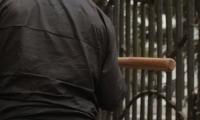Petroleum coke handling not being done in scientific manner at Karachi port, Sepa tells SHC
The handling of petroleum coke is being carried out at the Karachi port in an unscientific manner disregard of the provision of the Sindh Environmental Protection Act 2104 as well as the rules for hazardous substance notified by the Sindh Environmental Protection Agency (Sepa), a Sepa report submitted before the Sindh High Court.
Filing an inspection report before the SHC on a petition with regard to the operation of petroleum coke handling at Karachi port and its unsafe transportation to the city which is causing environmental hazard, the Sepa director general submitted that environmental concerns associated with the handling of pet coke were mainly related to transportation, the degradation of the air quality, particularly emanating from dust fall, water quality, soil contamination, damage to ecosystem, health issues and quality of life.
He said there was no organised system to contain the dust emission nor any HSE system applied to safeguard the health of workers.
The Sepa DG stated that the mishandling also lead to spillage of pet coke and dust emission. He said it was obvious that a large number of people in this particular location could be affected from respiratory, eye and respiratory diseases due to the air pollution containing coal.
He said samples of petroleum coke and coal were sent to the environmental research centre of a private university and results showed that both coal and pet-coke have similar chemistry in term of metal contents, however, concentration of metallic contents was higher in pet-coke than South American and Indonesian coal.
Sepa submitted that pet coke can be handled only under strict regulations at regulated spaces and the handling of pet-coke without strict measures would be dangerous to environment and human health. Sepa suggested that the Karachi Port Trust (KPT) must take precautionary measures as per best practices and ensure compliance of the provision of the Sindh Environmental Protection Act 2014 and rules and regulations made for the handling of hazardous cargo in general and pet coke in particular for the protection of environment and human health.
Sepa also suggested that the KPT should plan for dedicated terminal of jetty for pet coke import with appropriate technology and pet coke storage in adequately designed storage facility.
Filing comments on the petition, the KPT submitting that the imported cargo was always unloaded and transported in accordance with mandatory regulations.
The counsel for the KPT, however, sought time to file objections on the Sepa report.
The SHC’s division bench, headed by Justice Mohammad Ali Mazhar, while granting time, directed the KPT counsel to file the comments by April 2.
Petitioner Dr Syed Raza Ali, a representative of a non-government organisation, had filed the petition against the operation of petroleum code handling at the Karachi port and its transportation in the city.
The petitioner contended that despite the Supreme Court had banned coal handling at KPT, thousands of metric tonne petroleum coke was still being handled, kept at open coal yard and transported in the city.
The petitioner’s counsel, Salahuddin Ahmed, submitted that the KPT was allowing the import of petroleum coke at the Karachi port without complying the environmental laws as petroleum coke could cause harm to humans as well as environment because it was not only inflammable but also several direct and indirect hazard on the health of citizen. He submitted that petroleum coke particles cause serious and life threatening respiratory diseases as particles of petroleum coke enters human lungs through air and penetrate into lungs and very difficult to expel.
He submitted that the petroleum coke handling and storage in US, India and other countries were either banned or regulated by strict preventive measures. The counsel submitted that petroleum coke could cause a number of health problems, including respiratory diseases, cardiovascular diseases and lung cancer, and most importantly children are highly susceptible and are affected by early onset of respiratory disease which can prove fatal in long term.
He submitted that petroleum coke was being transported through heavy vehicles to other cities from the KPT and such vehicles passed through densely populated areas of Karachi, including Clifton, Boat Basin, DHA and Quaidabad, and other parts of the country.
He said the SC had also banned the coal handling at the KPT but in essence it included petroleum coke because unloading of the petroleum coke and transportation from the KPT had same ramification as of coal. He said if import of the petroleum coke was to be allowed in future, it should only be allowed through the Port Qasim which at least had specialised facilities for import of the coal.
He mentioned the environmental protection agency had failed to implement its laws with regard to safe handling of petroleum coke. The court was requested to declare that petroleum coke handling at multipurpose berths and storage at coal yard by the KPT was permanent threat to the life of citizens of Karachi, environment, port and marine life.
He also sought declaration that petroleum coke handling, storage and transportation in open trucks is an environmental and health hazard. He requested the court to direct Sepa to take action against the KPT for import and transportation of petroleum coke in violation of Sepa laws.
-
 World's Biggest Fish Market Is Set To Open In Sydney: First Look Revealed
World's Biggest Fish Market Is Set To Open In Sydney: First Look Revealed -
 Ariana Grande, Jonathan Bailey Reuniting For THIS Project
Ariana Grande, Jonathan Bailey Reuniting For THIS Project -
 Sydney Sweeney Saved Herself From Brutal Roast: Here's How
Sydney Sweeney Saved Herself From Brutal Roast: Here's How -
 Prince Harry’s ‘unrealistic’ Hopes Get Dashed: ‘Sincerity For King Charles Is Under Question’
Prince Harry’s ‘unrealistic’ Hopes Get Dashed: ‘Sincerity For King Charles Is Under Question’ -
 Meghan Markle's New Product Sells Out Within Minutes
Meghan Markle's New Product Sells Out Within Minutes -
 Revealed: Who Leonardo DiCaprio Was Talking To In Viral Golden Globe Video
Revealed: Who Leonardo DiCaprio Was Talking To In Viral Golden Globe Video -
 Prince William Represents King Charles At Windsor Castle Ceremony
Prince William Represents King Charles At Windsor Castle Ceremony -
 'Hotel Transylvania 5' Gets Major Update By Film's Star
'Hotel Transylvania 5' Gets Major Update By Film's Star -
 PlayStation Plus Adds Over 300 Hours Of Gameplay Across Massive New Titles
PlayStation Plus Adds Over 300 Hours Of Gameplay Across Massive New Titles -
 Mandy Moore On Mom Friendships Amid Ashley Tisdale's Mom Group Claims
Mandy Moore On Mom Friendships Amid Ashley Tisdale's Mom Group Claims -
 Justin Baldoni Objects To Removing Taylor Swift's Name From Case
Justin Baldoni Objects To Removing Taylor Swift's Name From Case -
 Princess Eugenie, Beatrice Warned About Royal Titles After They Turn Down Prince William's Request
Princess Eugenie, Beatrice Warned About Royal Titles After They Turn Down Prince William's Request -
 Samsung One UI 8.5 Adds Fully Customisable Unlock Animations
Samsung One UI 8.5 Adds Fully Customisable Unlock Animations -
 Injured By Bullets, New York Father-son Duo Beat Alleged Gunman With A Bat
Injured By Bullets, New York Father-son Duo Beat Alleged Gunman With A Bat -
 Annular Solar Eclipse 2026: Here's Everything To Know About The ‘ring Of Fire’
Annular Solar Eclipse 2026: Here's Everything To Know About The ‘ring Of Fire’ -
 Blake Lively Gives Up Hopes Of Taylor Swift Reconciliation?
Blake Lively Gives Up Hopes Of Taylor Swift Reconciliation?



